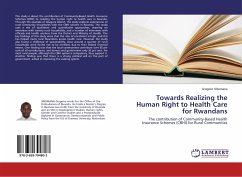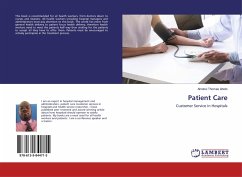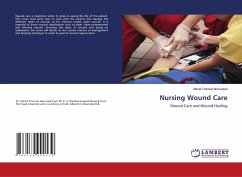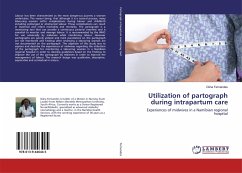
Towards Realizing the Human Right to Health Care for Rwandans
The contribution of Community-Based Health Insurance Schemes (CBHI) for Rural Communities
Versandkostenfrei!
Versandfertig in 6-10 Tagen
27,99 €
inkl. MwSt.

PAYBACK Punkte
14 °P sammeln!
This study is about the contribution of Community-Based Health Insurance Schemes (CBHI) to realizing the human right to health care in Rwanda. Through the example of Gisagara District, the study explores experiences of rural community households with the CBHI scheme in Rwanda. The study uses a mix of qualitative and quantitative approaches, drawing on interviews with twenty rural households, and a number of interviews with officials and health workers from the District and Ministry of Health. The key findings of this study were that the rate of enrolment is high, and this has helped many rural...
This study is about the contribution of Community-Based Health Insurance Schemes (CBHI) to realizing the human right to health care in Rwanda. Through the example of Gisagara District, the study explores experiences of rural community households with the CBHI scheme in Rwanda. The study uses a mix of qualitative and quantitative approaches, drawing on interviews with twenty rural households, and a number of interviews with officials and health workers from the District and Ministry of Health. The key findings of this study were that the rate of enrolment is high, and this has helped many rural Rwandans access health care. However the study also found a challenge of sustainability, since around a quarter of rural households were found not to be enrolled, due to their limited financial means. One finding was that the local communities contribute over 65 per cent of all contributions, and donors and government only 35 per cent. For most rural people, although the CBHI system is compulsory, they support it. Another finding was that there is a strong political will on the part of government, aimed at improving the existing system.












